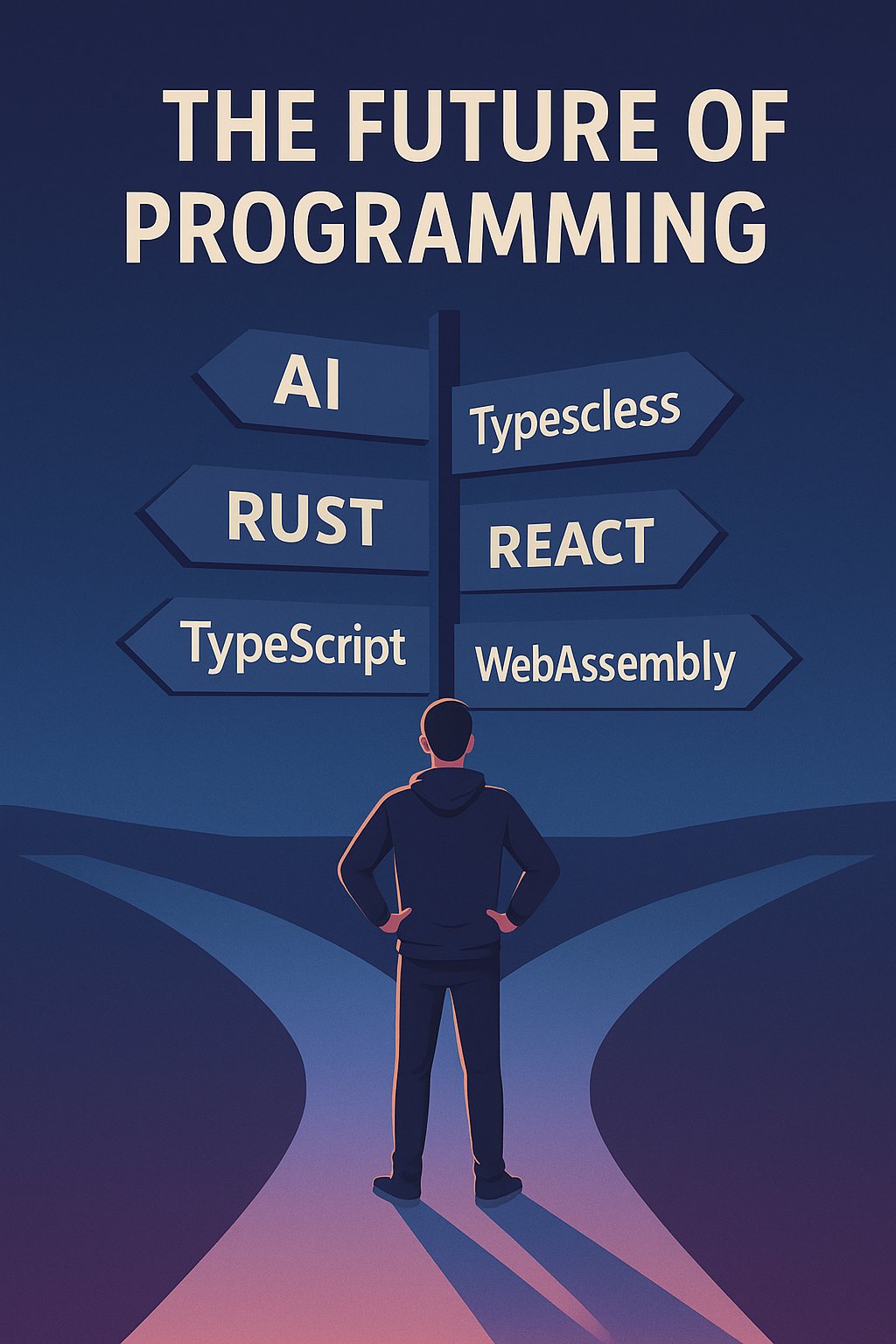
The Future of Programming: Languages, Frameworks, and Approaches You Should Learn Today
Опубліковано 5 days ago • 18 • ️ 1
The world of development is evolving fast: AI is automating tasks, new frameworks pop up monthly, and old paradigms fade away.
This article covers:
- Why TypeScript matters more than plain JS
- How Rust is overtaking C++ in modern systems
- What are serverless, edge functions, and why they matter
- The future of web frameworks: React? Solid? Qwik?
- Skills AI won’t replace anytime soon
🚀 Want to stay relevant in 2025+? This is your future-proof dev guide.
The Future Is Already Here
Five years ago, jQuery and PHP ruled the web. Today, AI helps you code, browsers run WebAssembly, and backends live on CDNs.
So what does the next 5 years hold for devs? What should you learn now to stay ahead?
1. Frontend: From React to Qwik — the Performance Wars
React is still huge, but challengers are rising:
- SolidJS — ultra-performant, minimal reactivity model.
- Qwik — first “resumable” framework: instant load, no hydration.
- Astro — content-focused, supports multiple frameworks.
If you know React — great. But add Qwik or Solid to your stack. They’re the future of high-perf UI.
2. TypeScript: The New Default
Plain JavaScript is becoming a legacy option.
TypeScript is the modern standard. It brings:
- intelligent autocompletion and refactoring,
- safer AI-assisted coding,
- full support in major frameworks.
Typed frontend = stability + scale + AI-friendliness.
3. Backend: Rust, Serverless, and the No-Server Future
Node.js is still around, but here come the challengers:
- Rust — memory-safe, blazingly fast, great for performance APIs and WebAssembly.
- Go — simple and robust, loved in backend systems and APIs.
- Serverless & Edge — AWS Lambda, Cloudflare Workers, Vercel Edge Functions let your backend run near the user.
This means:
- less infrastructure,
- less DevOps burden,
- more global performance.
4. Mobile: Native, Web, or Wasm?
- React Native still dominates, but Flutter is catching up.
- Progressive Web Apps (PWA) are back — and might rule the mid-future.
- WebAssembly is powering cross-platform apps in Rust, C#, and beyond.
5. AI Won’t Replace You If…
- You understand architecture — AI writes functions, not systems.
- You think like an engineer — optimization, scalability, design still need brains.
- You have critical thinking — AI guesses, you know.
AI is a tool — not a dev. But working with it is now essential.
Conclusion: Your Future-Proof Stack
Frontend: Qwik or SolidJS + TypeScript
Backend: Rust or Go + Serverless (Lambda / Workers)
Apps: PWA or Flutter
AI: Integrate it. Don’t fear it.
The future won’t be stable. But it will be fast, flexible, and automated. Stay current — and stay ahead.
